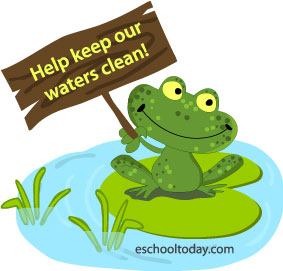- Water Pollution
What is water pollution?
Water pollution is the contamination of water bodies (lakes, rivers, oceans, aquifers, and groundwater), very often by human activities.
Water pollution occurs when pollutants (particles, chemicals, or substances that make water contaminated) are discharged directly or indirectly into water bodies without enough treatment to get rid of harmful compounds. Pollutants get into water mainly by human causes or human factors. Water pollution can be Point-source, Non-Point-source, or Transboundary in nature.
Water pollution is the second most imperative environmental concern along with air pollution.
Any change or modification in the physical, chemical, and biological properties of water that will have a detrimental consequence on living things, is water pollution.

The water pollution problem
Water covers over 70% of the Earth’s surface. It is an important resource for people and the environment.
Water is crucial to human health. The WHO advises that at least 7.5 liters per day per person are necessary to meet “the requirements of most people under most conditions” and at least another 20 liters per day to cover basic hygienic needs.*
Source: (WHO, 2015a). UNEP, ISBN Number: 978-92-807-3555-0 Page 17
As long as humans live, water will be needed and consumed. That means humans are bound to create wastewater. It also means we will produce other non-water items, and the disposal of waste (metals and other liquids) from that process will affect freshwater and the environment in some way.
Water pollution affects drinking water, rivers, lakes, and oceans all over the world. In many developing countries, it is usually a leading cause of death by people drinking from polluted water sources.
More to this, water pollution affects not only individual living species but also populations and entire functioning ecosystems that exist in the waters.
Humans have now realized the importance of clean water as a foundation for life. In recent times, more and more organizations and councils are working hard to educate, protect, restore waterways, and encourage practices that help keep water from contamination, and also preserve water ecosystems from destruction.
